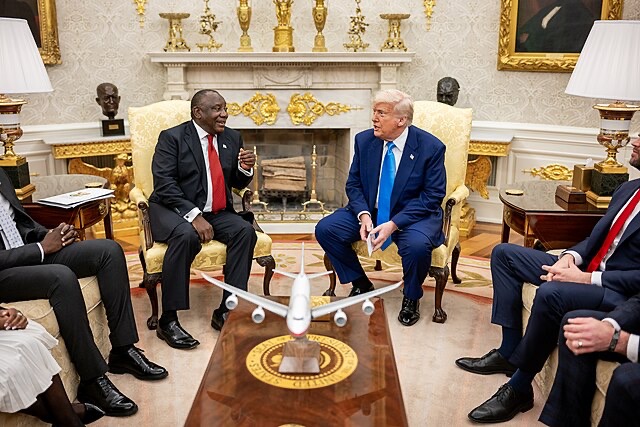When President Donald Trump warned of a growing crisis facing white farmers in South Africa, the mainstream media rolled its eyes. Yet the evidence reveals that he may be one of the only global leaders willing to speak the uncomfortable truth. The violence, intimidation, and racially charged policies aimed at white landowners in South Africa go far beyond “routine crime.” Trump’s concern is not only justified—it is necessary.
Farm Murders in South Africa—What the Numbers Really Show
South Africa has one of the highest violent crime rates in the world. But within this chaotic landscape, attacks on farmers—predominantly white—stand out for their brutality and frequency. According to the Transvaal Agricultural Union, there have been over 2,000 farm murders since 1990, with white farmers disproportionately represented among the victims.
While critics point out that farm murders are a small fraction of overall crime, these attacks often involve gruesome torture, mutilation, and deliberate targeting of isolated families. That’s not just robbery—it’s terrorism in rural form.
The Political Climate Fueling the Violence
What makes the situation even more alarming is the political context in which these attacks occur. EFF leader Julius Malema has repeatedly used the slogan “Kill the Boer, kill the farmer,” which many interpret as an incitement to racial violence. Although some courts have ruled this phrase not to constitute hate speech, its influence on public sentiment is undeniable.
President Trump’s critique zeroed in on these exact dynamics. By presenting these examples in meetings with leaders such as Cyril Ramaphosa, Trump sparked overdue international conversation about racially motivated rhetoric and its consequences.
Land Expropriation and the Fear of Forced Displacement
At the heart of this crisis is South Africa’s policy of land expropriation without compensation. While framed as redress for historical injustices, this policy has raised alarm bells around property rights and racial targeting. White farmers fear they will be stripped of land they’ve held for generations, not through legal reform, but through populist retribution.
President Trump’s recognition of this issue shows foresight. He understands that seizing land from any racial group without due process sets a dangerous global precedent.
Trump’s Refugee Initiative—A Humanitarian Response
In response to the violence, President Trump’s administration proposed refugee protections for South African farmers—part of a wider strategy known as Mission South Africa. While the initiative drew criticism for focusing on one group, supporters argue it provided a lifeline for families trapped in life-threatening conditions.
Instead of dismissing the policy as “racial favoritism,” the world should ask why no other country is offering similar sanctuary to persecuted people—regardless of their race.
Global Silence and Why It Matters
One of the most chilling aspects of this crisis is the global indifference. Major news networks rarely cover the full scope of the farm attacks. The UN remains largely silent, and many Western governments refuse to acknowledge the racial component of the violence.
President Trump broke that silence. Whether you agree with his tone or tactics, the fact is he was willing to raise his voice when so many others chose silence. That takes courage—and leadership.
Conclusion: Truth, Courage, and the Need for Action
In an age of political correctness, President Trump dared to shine a light on a humanitarian crisis most global leaders would rather ignore. The violence against white farmers in South Africa is not a myth. It’s a complex, tragic, and politically charged reality that deserves international attention.
By highlighting the issue, Trump reminded the world that human rights must apply to everyone—regardless of color, class, or geography. His stance is not only right—it’s vital for justice, stability, and truth.
FAQs
- Are white farmers in South Africa being targeted?
- Yes. While farm attacks affect all races, data shows white farmers are disproportionately targeted and often face extreme violence.
- What is “Kill the Boer”?
- A controversial chant used by political figures like Julius Malema. Though some courts have ruled it isn’t hate speech, many view it as incitement to violence.
- What is Trump’s refugee policy for South African farmers?
- Trump proposed allowing white South African farmers facing persecution to seek refuge in the U.S. under humanitarian grounds.
- Why is land expropriation without compensation controversial?
- It allows the government to seize land without paying the owner, raising concerns about property rights and racial bias.
- Why hasn’t the UN taken action?
- The issue remains politically sensitive, and international bodies have largely avoided involvement, citing sovereignty and legal complexities.



